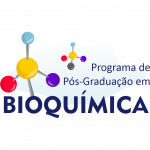History
The conception of the Graduate Program in Biochemistry at Universidade Federal de Santa Catarina (PPGBQA/UFSC) was associated with the renewal of the Biochemistry Department faculty in the early 2000s. In the following years, most professors in the Department who had recently completed their doctoral training were establishing independent and productive research teams. Thus, in 2008, a group of 12 professors participated in the creation and implementation of PPGBQA/UFSC:
Afonso Celso Dias Bainy, Alexandra Susana Latini, Ana Lúcia Severo Rodrigues, Boris Juan Carlos Ugarte Stambuk, Carla Inês Tasca, Carlos Peres Silva, Fátima Regina Mena Barreto Silva, Hernán Francisco Terenzi, Marcelo Farina, Nelson Horácio Gabilan, Rodrigo Bainy Leal and Rozangela Curi Pedrosa.
In 2009, the professors Alcir Luiz Dafré, Andreza Fabro de Bem, and Ariane Zamoner Pacheco de Souza joined the group. Subsequently, the number of permanent faculty members was expanded with the addition of professors Manuella Pinto Kaster (2013), Margarete Dulce Bagatini (2018), Guilherme Razzera (2019), Alfeu Zanotto Filho (2019), Alex Rafacho (2021), Eduardo Alves de Almeida (2022) and Alexandre Pastoris Muller (2022).
Other collaborating and visiting professors have also contributed to the program along its history, such as Aderbal Aguiar Silva (2018-2022), Tânia Beatriz Creczynski Pasa (permanent member between 2012-2016 and collaborating member between 2016-2020), Joana Margarida Navalho Gaspar (2017-2021), Guilherme Toledo e Silva (2021-2022), Roberta de Paula Martins (2021-2023), Maicon R. Kviencinski (2021), and Luísa Damázio Rona Pitalunga (since 2023).
The PPGBQA is currently made up of 23 supervising professors, 20 of whom are permanent professors, 1 collaborating professor, and 1 visiting professor. Among the group, 18 professors are CNPq research productivity fellows, and 10 also teach undergraduate courses in the Department of Biochemistry at UFSC.
In the first time the Program was evaluated by CAPES (the Brazilian Coordination for the Improvement of Higher Education), it reached grade 5 out of 7. Since then, the Program has been investing in qualifying human resources, developing internationalization projects, producing relevant international papers, and promoting the scientific dissemination of its three Lines of Research: Biochemical Toxicology, Molecular and Structural Biology, and Signal Transduction. As a result, in the last CAPES evaluation (2017-2020), the Program obtained grade 6.
PPGBQA Coordinators and Deputy Coordinators since its creation:
- 2008/2009 – coordinator: Dr. Fátima Regina Mena Barreto Silva
deputy coordinator: Dr. Hernán Francisco Terenzi - 2009/2010 – coordinator: Dr. Hernán Francisco Terenzi
deputy coordinator: Dr. Marcelo Farina - 2010/2011 -coordinator: Dr. Marcelo Farina
deputy coordinator: Dr. Andreza Fabro de Bem - 2012/2013 -coordinator Dr. Bóris J. C. Ugarte Stambuk
deputy coordinator: Dr. Carlos Peres. Silva - 2014/2016 – coordinator: Dr. Carlos Peres. Silva
deputy coordinator: Dr. Bóris J. C. Ugarte Stambuk - 2017/2018 – coordinator: Dr. Ariane Zamoner Pacheco de Souza
deputy coordinator: Dr. Manuella Pinto Kaster - 2019/2020 -coordinator: Dr. Ariane Zamoner Pacheco de Souza
deputy coordinator: Dr. Alexandra Susana Latini - 2021/2022 -coordinator: Dr. Manuella Pinto Kaster
deputy coordinator: Dr. Marcelo Farina - 2022/current -coordinator: Dr. Marcelo Farina
deputy coordinator: Dr. Manuella Pinto Kaster


 »
» Português do Brasil
Português do Brasil Español
Español



